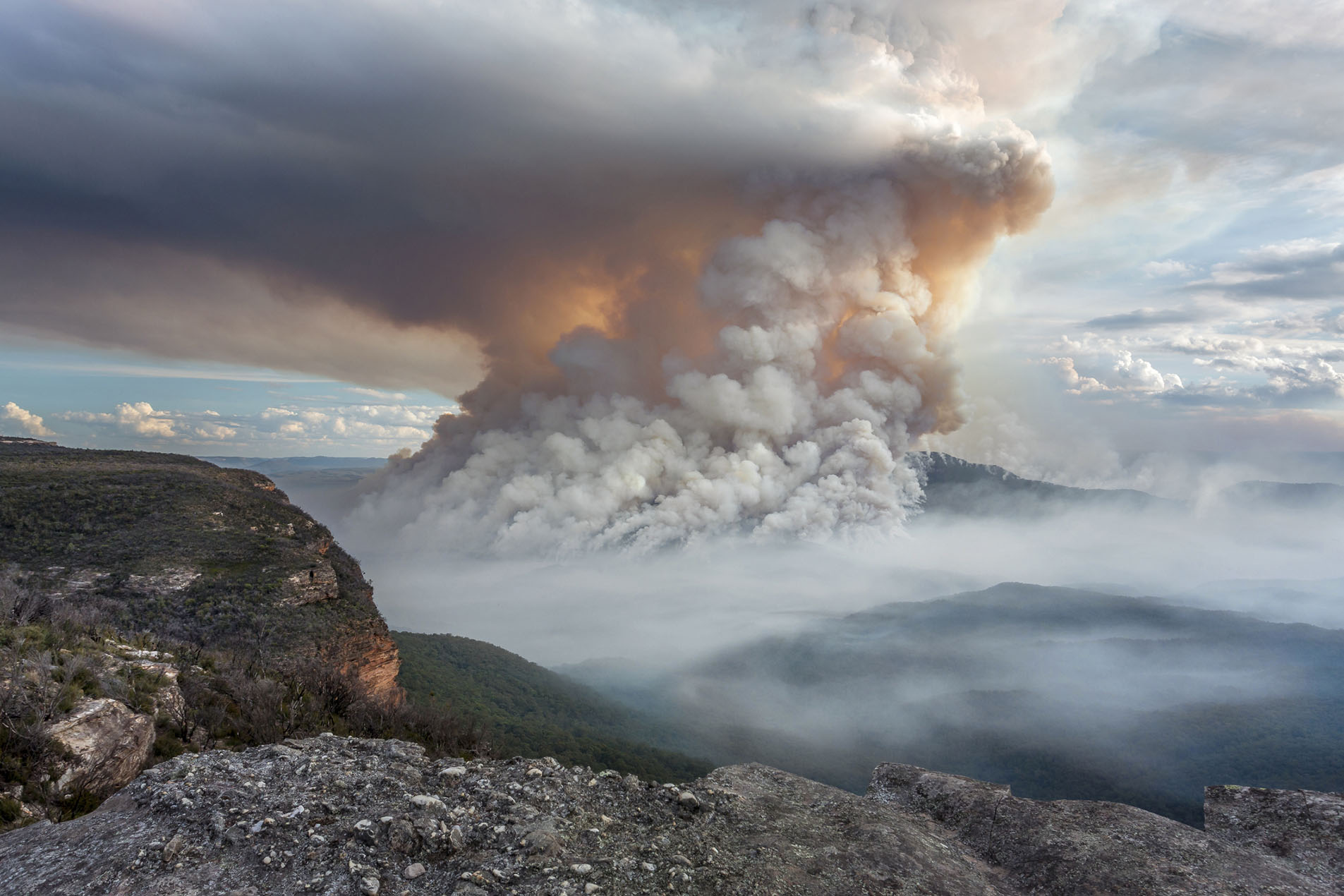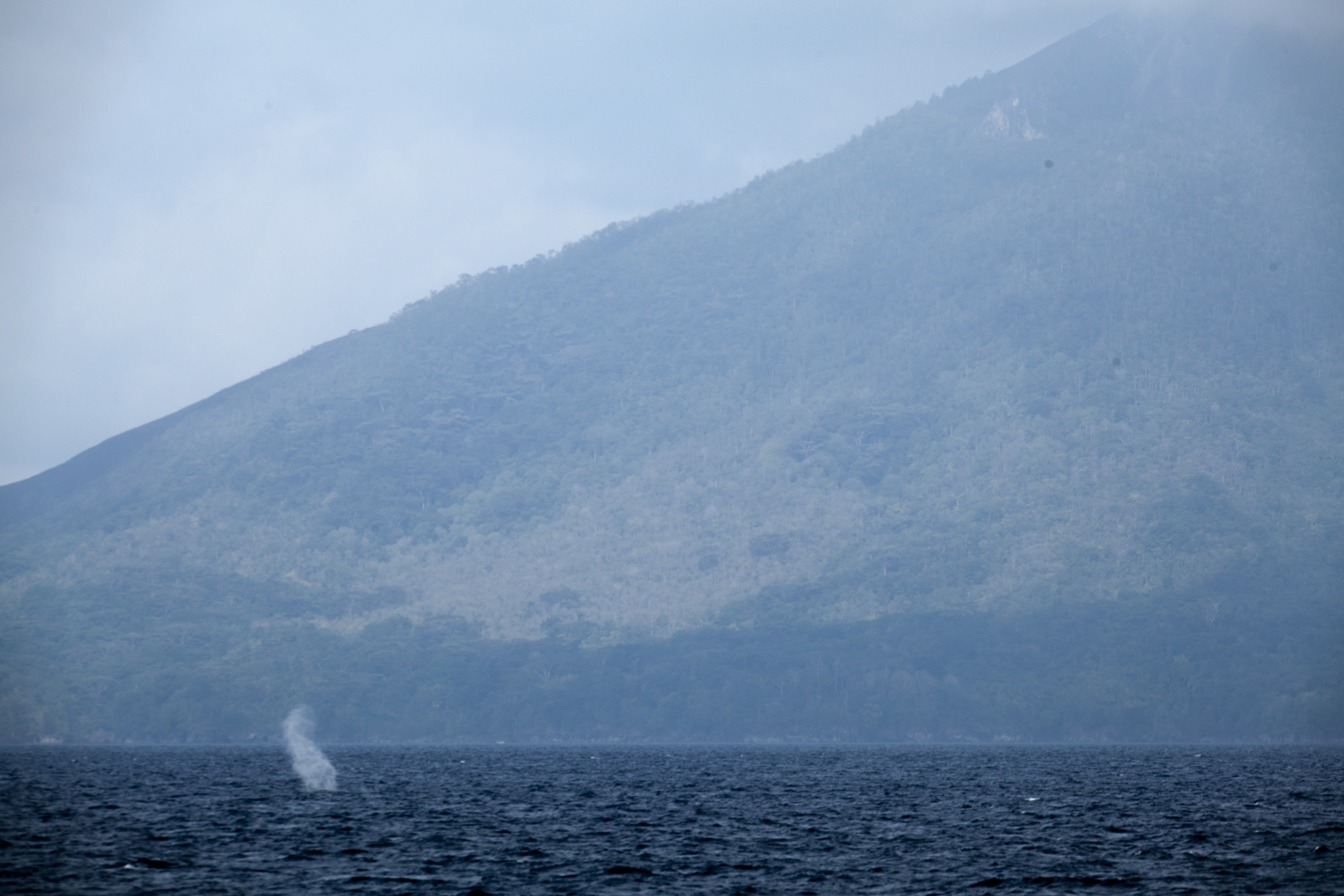Simon Mustoe
Writer, photographer and founder of Wildiaries
Just north of Australia, there is a region called the Banda Sea. It’s a 7,700m deep basin where hot tropical water from the Pacific pools and cools before flowing into the Indian Oceans. It acts as a valve for global ocean temperatures and climate.
LISTEN TO THE INTERVIEW with Wildiaries' Simon Mustoe RRR Radio Marinara
Each year when the Central Asian plateau warms and air rushes up the sides of Mount Everest, the winds that are sucked in over the Banda Sea from the south east, drive upwellings that attract Blue Whales to feed on an abundance of plankton.

We were fortunate to be there, to witness Blue Whales feeding in large numbers in the shadow of Banda Neira’s main volcano. It was also a bumper year for Hammerhead Sharks, much to the delight of so many divers.
In any normal southeast monsoon season, the Banda Sea surface cools by about three degrees, compared to other times of year but it only takes a fluctuation of about 1.2ºC to trigger the Indian Ocean Dipole (IOD), a climate phenomenon that drives Australia’s weather systems and agriculture.
In 2019, a positive IOD event occurred, one of the most persistent recorded. The southeast monsoon winds continued weeks longer than normal, providing incredible feeding conditions for the whales and unusually cool water.
Little do we appreciate, that all these animals contribute enormously to ocean cooling. Marine vertebrates are responsible for a third of ocean mixing. The top 150m layer of the Banda Sea is warm water from the Pacific and flows in one direction, while below it, is cooler water flowing in the opposite direction, emanating from the deep. Whales, sharks and fish, swim up and down through the boundary layer, stirring the cool and warm water, driving the system like a massive refrigerator. Their actions are equivalent to all tides and wind combined.
The unusually strong winds meant an abundance of plankton, so Blue Whales and other animals went into over-drive, feeding longer and more persistently, forcing even greater mixing and cooling. The whales also lift nutrients to the surface where sulfides oxydise with ammonia from seabirds and fish droppings, creating cloud seeds. This way, seabird colonies influence rainfall on a continental scale. The cloud albedo effect also reflects the Sun’s heat and further cools the ocean.
Why do we get bushfires in Australia when the water cools?
Cooler conditions in the Banda Sea (driven by southeast winds) means dry, stratospheric air falls to the surface, and this lack of humidity, combined with prolonged southeast winds and the hot Australian desert, makes for little or no rainfall. In 2019, this particularly extreme event, led to the drying of our continent and catastrophic bushfires.

But if Blue Whales are a significant component in ocean cooling, doesn’t this also mean they contributed to the bushfires and destruction of huge areas of farmland and forest across southeast Australia in 2019?
It does. In the common meaning of the word, Blue Whales just became an agricultural “pest” on a monumental scale. Calling Blue Whales a pest though, is bound to be controversial but it’s no different to why the crown of thorns starfish responds to an increase in agricultural runoff, or locusts invade crops. Animals are part of climate-ecosystem-coupled processes and their behaviours are triggered whenever there is a need to regulate planetary heat. That’s all feeding is, a mechanism to lock free energy safely away from the atmosphere and oceans.
This makes a stronger case for the conservation of Blue Whales and all wildlife, when you realise the story in full. Banda’s Blue Whales are a portent of what happens when we allow wildlife populations to decline. Biodiversity collapse means ecosystems become hotter and more unpredictable, which debilitates farming and fisheries.
It’s not just about Blue Whales though. All animals in the Banda Sea contributed to the 2019 processes. Blue Whales are just as significant as sharks, turtles, fish and seabirds. They all hold up their pillar of the food pyramid and are doing their part to keep planetary systems under control.
Why we need the conservation of animals such as Blue Whales
At the back of your fridge, the pipes that flow around the coolant, can get very hot. If you remove the processes that circulate the coolant, your compressor can overheat and cause a kitchen fire. You don’t disable the pump to fix the problem, you replace it, so your fridge doesn’t get damaged.
In 2019, Blue Whales were responding to an enormous influx of free surplus energy which was the consequence of global heating. The kitchen that was threatening to burn, was Australia’s backyard. The prolonged monsoon winds meant the whales could feed more actively, thus reducing world temperatures, by pumping harder. Animals are Earth’s cooling pumps and if they break down completely, we have an even bigger climate problem.
Unfortunately, bushfires in 2019 were a by-product of a climate that has changed due to the loss of animals already. In the last few hundred years, there has been a massive 96% decline in the movement of marine vertebrates around the world. In the Banda Sea alone, most vertebrate populations have been reduced by 90% in the last 50 years.
Animals were moderating Earth’s heat engine well before we started burning fossil fuels so if we have any chance of avoiding catastrophic events in future, even if we reach our 2050 carbon-reduction targets, we are going to need to not only conserve, but rebuild animal populations too.
As for Australia, we happen to live on the wrong side of the cooling system … the side that gets hot when the pumps are working overtime. This means we have a lot more to lose than other nations.
The take-home message is that our nation's future food security and climate stability will depend on regrowing populations of animals, including Blue Whales, in future.
About the Author
Simon Mustoe
Writer, photographer and founder of Wildiaries
Simon is CEO of DeluxeLife. He is also an ardent conservationist and has been studying and observing wildlife for over 40 years. He's written a book called Wildlife in the Balance. He loves taking his worldwide travel experience to help people discover new and exciting places to visit,as well as contributing to science and conservation.
Sign Up for Interest in Wildiaries Expeditions

We strive for authentic, fulfilling travel experiences and support people we believe, create a better world. Sign up for stories, features, sustainable travel opportunities and to learn a new way to see rare creatures and wild places.



